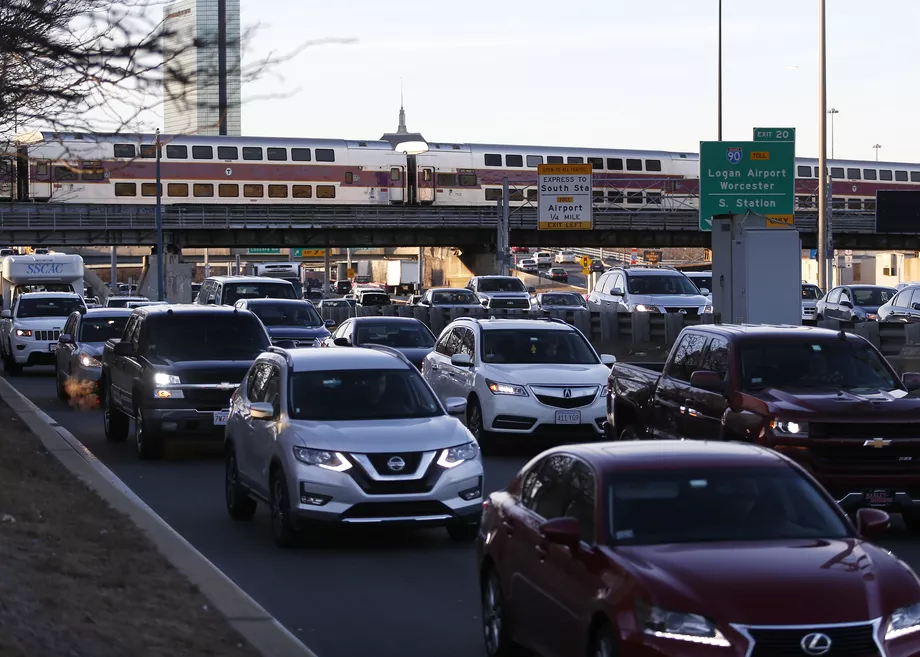Parking cash out
Review our guide to putting in place a parking cash out for companies and organizations.
Studies show a parking cash out program can reduce employee demand for parking by 11 to 17 percent. In a congested City, employees need more sustainable transportation benefits.
What is parking cash out?
Boston's streets are congested and often too stressful to drive on. But, employee parking benefits effectively pay employees to drive.
When an employer pays for the cost of parking at work, they are paying for part of the cost of commuting. It's a benefit that those who do not drive — or do not want to drive — to work do not enjoy. It's just not equitable.
Parking cash out is a parking management strategy. Employers who provide subsidized parking also offer an option to swap their parking space for its market value. Employees who do not drive to work can cash out their parking space, or receive a comparable transit benefit. Employees who do choose to drive are not affected by a parking cash out program. They can continue to drive in without interruption.
A parking cash out program makes sure employees have choices. They can use the cash allowance to take public transit or bike to work. More options means less traffic, less congestion, and less emissions. It's better for employees and for Boston.

Who qualifies?
To put in place a parking cash out program, employers must:
- be subsidizing their employees' parking spaces, either partially or fully
- determine their parking costs, and
- not be penalized by their lease for reducing the number of parking spaces. Parking spaces should be separate from the lease.
- Are you an employer with many work sites and different leased parking rates? You can create an average cost for each parking space.
- For developers to put in place parking cash out program, parking spaces must be unbundled or separate from the building lease.
- Employees who use on-street parking do not qualify to take part in a parking cash out program. Employees who opt into the program must commit to finding alternative transportation, and to not driving alone.
Cash out allowance
The cash allowance must equal the parking subsidy the employer provides to employees for a parking space. This price is minus any transit or other sustainable transit subsidy the employee is using. It should be provided monthly. Here's are some examples of what that could look like:
| Cost of parking per month | Employee Pays | Cash Allowance |
|---|---|---|
| $100 | 0 | $100 |
| $100 | $20 | $80 |
| $100 | 0, but receives $50 transit subsidy | $50 |
| $100 | 0, but receives $100 commuter pass | 0 |
Common questions
QuestionsFor the program to work, employees must have the expectation of having a subsidized parking space to park. This is true whether it's assigned or unassigned.
Let's say an employer leases 40 parking spaces daily for 100 employees on a first-come, first-serve basis. The employees cannot expect to have a guaranteed parking space. In this particular case, a better practice would be to charge the employees market rates, or create a sliding scale based on employee salary for parking.
Not at all! All an employer is doing is giving employees the option to either use the parking space or use that money for another sustainable transit benefit. Benefits include a commuter rail pass or a bike-share membership.
Giving your employees options gives them the flexibility to choose less stressful and more sustainable transportation. Having a dedicated parking space is a perk. But, being stuck in traffic and contributing to congestion is not.

